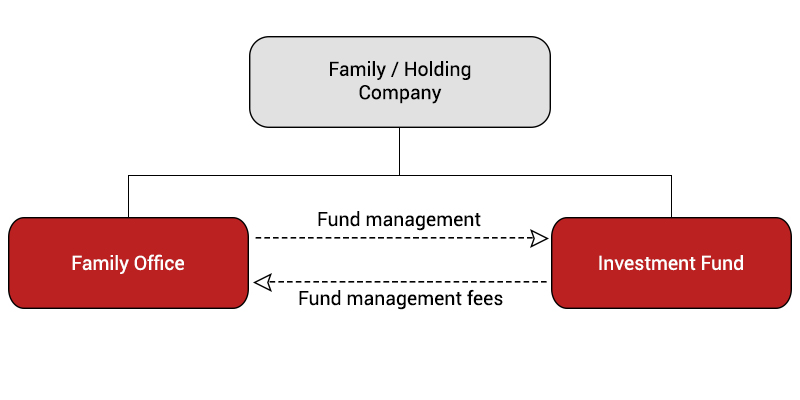Buying & Holding Properties on Trust for Children
This article provides some general guidelines, the practical and legal implications on purchasing a property on trust for children
For many people in Singapore, a house represents more than a place to live – many look at property as an investment. With this in mind, parents are often interested in knowing how to buy properties for their minor children.
A child is a minor until they reach 21 years of age and as a minor, they cannot own property in their name. However, parents can buy property for their minor children by holding it on trust. When this is done, the child would be the beneficial owner of the property.
This article covers what “holding property on trust” means in Singapore, along with the practical and legal implications of setting things up like this.
Table of Contents
What does “holding property on trust” for a minor child mean?
Purchasing Property in Trust to Save On Additional Buyer’s Stamp Duty (ABSD)
Implications for parents of property being held on trust for their child(ren)
What are trustees allowed to do with the property?
Can any type of real estate be held on trust?
When will the child gain legal title? Can this be spelled out in the trust?
Is there some way for parents to safeguard their interests?
Legal Procedures Required to Create a Trust Over Property
What is a Trust?
A trust is a fiduciary relationship in which one party, known as a trustor, gives another party, a trustee, the right to hold title to property or assets for the benefit of a third party, the beneficiary. As an example, a trust can be used if a beneficiary in minor under the age of 21, or has a mental disability that impairs the person’s ability to maintain his or her own real estate. Once the beneficiary is deemed able to manage the real estate by the terms dictated under the deed of trust, the beneficiary will receive possession of the trust. Deed of Trust is a document that lay out the conditions of the trustor-trustee relationship.
Trustee has fiduciary duties to act with honesty, to render proper account of his dealings, to act for the best interest of the beneficiaries), and not to gain any profit for himself or to misappropriate of trust assets or funds. Trustee has the right to make decisions based on due diligence, and can be held personally liable for their actions if the beneficiary deems there was a breach of trust.
What does “holding property on trust” for a minor child mean?
When parents buy property for a child, and hold it “on trust,” they are still the legal owners, but their child is the beneficial owner of the property.
Basically, the child’s beneficial ownership is considered an equitable interest that is binding on all third parties, apart from a genuine purchaser who bought the property at full value without knowing that it was being held on trust. This means that the child is permitted to claim his/her proprietary interest in said property against everyone in the world except this bona fide purchaser.
Purchasing Property in Trust to Save On Additional Buyer’s Stamp Duty (ABSD)
One can purchase a property for one’s minor child(ren) under the age 21 in a trust. When buying properties held in trust, ensure that trustee has the right to make decisions. It is important to ensure who has the legal interest and deal with the person who has the legal interest of the property.
There is misconception that Additional Buyer’s Stamp Duty (ABSD) is not payable for property purchased in a trust. This is clearly not true. The Stamp Duty liability for purchasing a property in a trust will be based on the beneficiary’s residency status, and number of residential properties presently held in a trust. If one and spouse has both owned residential properties, this may be an option to purchase additional property without paying for the ABSC. The drawback of purchasing a property under trust is that the purchase has to be in full cash with no CPF or mortgage as the property must be free from encumbrances. The purchaser is unable to leverage with low cost of borrowing, and utilisation of fund from CPF Ordinary Account.
Implications for parents of property being held on trust for their child(ren)
When parents are holding property on trust for a child, people and/or businesses they owe money to have no legal right to claim the property that’s on trust to satisfy those debts.
At the same time, parents who are holding this property on trust are responsible for properly managing the property. This means they must pay all taxes and duties and any financial benefits derived from the property will ultimately go to the child.
However, if this property is earning income, this money is legally considered to be the trustee’s income since he/she is the one managing the property. Therefore, the trustee must pay tax on this income, which is set at a flat rate of 17%
If the child, as beneficiary, receives a portion of the income earned by the trust property, for which they are NOT usually entitled, their portion would not be subject to another round of tax.
But if the beneficiary is entitled to a portion of the income from the trust due to a trust deed, then their portion of this income would be assessed at the same rate as their personal income tax. At the same time, no tax will be imposed on the trustee for this portion of the income.
Also, these beneficiaries will be accorded the same concessions and exemptions as those given to individual resident taxpayers.
What are trustees allowed to do with the property?
The terms spelled out in the trust document are what gives trustee’s their power, and this extends to how they are permitted to handle the property.
For example, the trust deed may specifically say that the trustee has the right to rent the trust property out in order to generate income.
The Trustees Act specifically gives the trustee certain powers, but only if those powers do not conflict with the terms set forth in the trust instrument. These powers include the following:
- Power to invest in, maintain, and insure minor child(ren)
- To advance the benefits accorded to the beneficiaries
Can any type of real estate be held on trust?
HDB and private properties are both allowed to be held on trust, however the Housing Development Board must give written permission before a trust on an HDB property can be created.
When will the child gain legal title? Can this be spelled out in the trust?
A fixed trust may be terminated by all trustees, with legal title of the property going to the child if he/she is of full age, not disabled, and fully entitled to gain legal title under the trust.
However, if the parents meant all along for their child to assume legal title of the property at a later date or time, the trust instrument should specifically spell out when that will be. They might want their child to be older before inheriting the property or to wait until a particular occasion.
Is there some way for parents to safeguard their interests?
You can opt to elect an alternate beneficiary, which would keep the gift from failing if your primary beneficiary passes on before you.
Legal Procedures Required to Create a Trust Over Property
The trust is created when:
- A trust deed or Deed of Settlement is executed between the settlor who is creating the trust, and the trustee who will be managing the trust, who is also allowed to be the settlor; and
- Assets are transferred into the trust.
The settlor has to decide while executing the Deed of Settlement what the main terms of the trust will be, including:
- Primary beneficiaries
- Appointed trustee
- Powers the settlor wants to keep if any
When creating a trust over property that will not require changes to be made in its beneficial interest (e.g., the child being named as the property’s beneficial owner at the time it’s bought) the trust deed must be stamped with a $10 fixed duty.
If you are buying properties to hold on trust, you must fully pay for them in cash because CPF funds are not allowed to be used for this type of purchase. Also, banks are not usually interested in offering loans to people buying property to hold on trust.
You can also lodge a caveat on your child’s behalf to safeguard the property.
With effect from 27th April 2023, there is an additional buyer’s stamp duty of 65% paid upfront to residential property transferred to a living trust for a beneficiary (such as a minor under 21 years of age). Refunds from IRAS can be made when conditions are met. For more information, read ABSD Requirements when Transferring Residential Property into a Living Trust.
This article gives you some general guidelines on purchasing a property on trust. To understand the process of creating a trust in more detail and/or what alternatives there may be, we would be happy to refer you to one of our partner lawyers with years of experience in creating trusts.
Disclaimer: The information provided in this article does not constitute legal advice. We recommend that you get the specific legal advice you need from an experienced attorney prior to taking any legal action. While we try our best to make sure that the information provided on our website is accurate, you take a risk by relying on it.
At Pinnacle Estate Agency, we strongly believe in sharing our real estate knowledge to the public. For more content like this article, check out our Singapore Property Guides.







